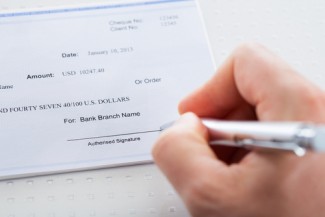Anti
01 While The The All that said, at least some of the data may indicate a less radical change in antitrust enforcement under Biden as compared to Trump than the conventional wisdom suggests.
Merger Enforcement
The Biden administration has been very public about its skepticism of mergers and acquisitions, particularly those among larger players, those in certain industries (e.g., healthcare), and those involving private equity firms. In the first six months of his administration, President Biden issued a forceful executive order reaffirming his administration’s policy to vigorously combat “excessive concentration,” “serial mergers” and “acquisitions of nascent competitors.”
Assistant Attorney General for the Antitrust Division, Jonathan Kanter, has similarly taken an aggressive approach against mergers that result in more market power, but less competition.[1] And of course, Chair of the FTC, Lina Khan, has made it abundantly clear that the FTC’s priority is blocking harmful mergers rather than allowing them to proceed with structural remedies.[2]That said, the numbers suggest a different, or at least a more complicated, story. The The (The red graphs represent fiscal years during Trump’s administration and the blue graphs represent fiscal years during Biden’s administration, up to the year that data is publicly available).
That said, there appears to be no discernable change between the number of enforcement actions
 [3]
[3]
relative to the number of Second Requests.[4]Not reflected in the numbers, however, are two significant, related trends in merger enforcement emerging in 2023 and 2024. The The In other words, the Biden administration’s strong rhetoric and policies have created a chilling effect for these types of transactions that is not reflected in the data.

Criminal Antitrust Enforcement[6]The DOJ’s annual numbers of corporations and individuals charged remained relatively the same across the Trump and Biden administrations. Interestingly, however, the annual number of criminal cases filed actually decreased under Biden as depicted on the right (data publicly available until FY 2023).
Non-Merger Antitrust Enforcement
In addition to merger and criminal enforcement, the Agencies also bring actions under the Sherman Act for a variety of anticompetitive conduct such as price fixing, unlawful monopolizations and attempted monopolizations. The FTC also enforces Section 5 of the FTC Act for unfair methods of competition, which include but are not limited to conduct that violates the Sherman Act.


Again, while the Biden administration has been much more vocal about taking on anticompetitive conduct that leads to rising prices and fewer choices for consumers, the numbers do not indicate a corresponding uptick in enforcement under Biden as compared to Trump.
While the total number of non-merger enforcement actions between the two Agencies has remained relatively static across the two most recent administrations, there have been notable changes in enforcement priorities that are not reflected in these numbers.
First, there has been a notable increase in the number of actions brought by the FTC in particular under FTC Chair Lina Khan. The In The 01

FOOTNOTES
President Biden, Executive Order on Promoting Competition in the American Economy (July 9, 2021), Executive Order on Promoting Competition in the American Economy | The White House.[10] Jonathan Kanter, Assistant Attorney General Jonathan Kanter of the Antitrust Division Delivers Remarks to the New York State Bar Association Antitrust Section (Jan. 24, 2022), Office of Public Affairs | Assistant Attorney General Jonathan Kanter of the Antitrust Division Delivers Remarks to the New York State Bar Association Antitrust Section | United States Department of Justice.
FTC & DOJ Antitrust Division, Hart-Scott-Rodino Annual Reports, Fiscal Years 2017-2022, Annual Competition Reports | Federal Trade Commission (ftc.gov).
[1] FTC and DOJ broadly define “enforcement actions” to include (i) transactions resolved by either consent order or settlement; (ii) transactions in which the Agencies initiated administrative or federal court litigation; and (iii) transactions which resulted in abandonment or restructuring of the transaction as a result of antitrust concerns raised by the Agencies. United States Department of Justice (last visited 9/5/2024).
[2] FTC, FTC Announces Rule Banning Noncompetes (April 23, 2024), FTC Announces Rule Banning Noncompetes






